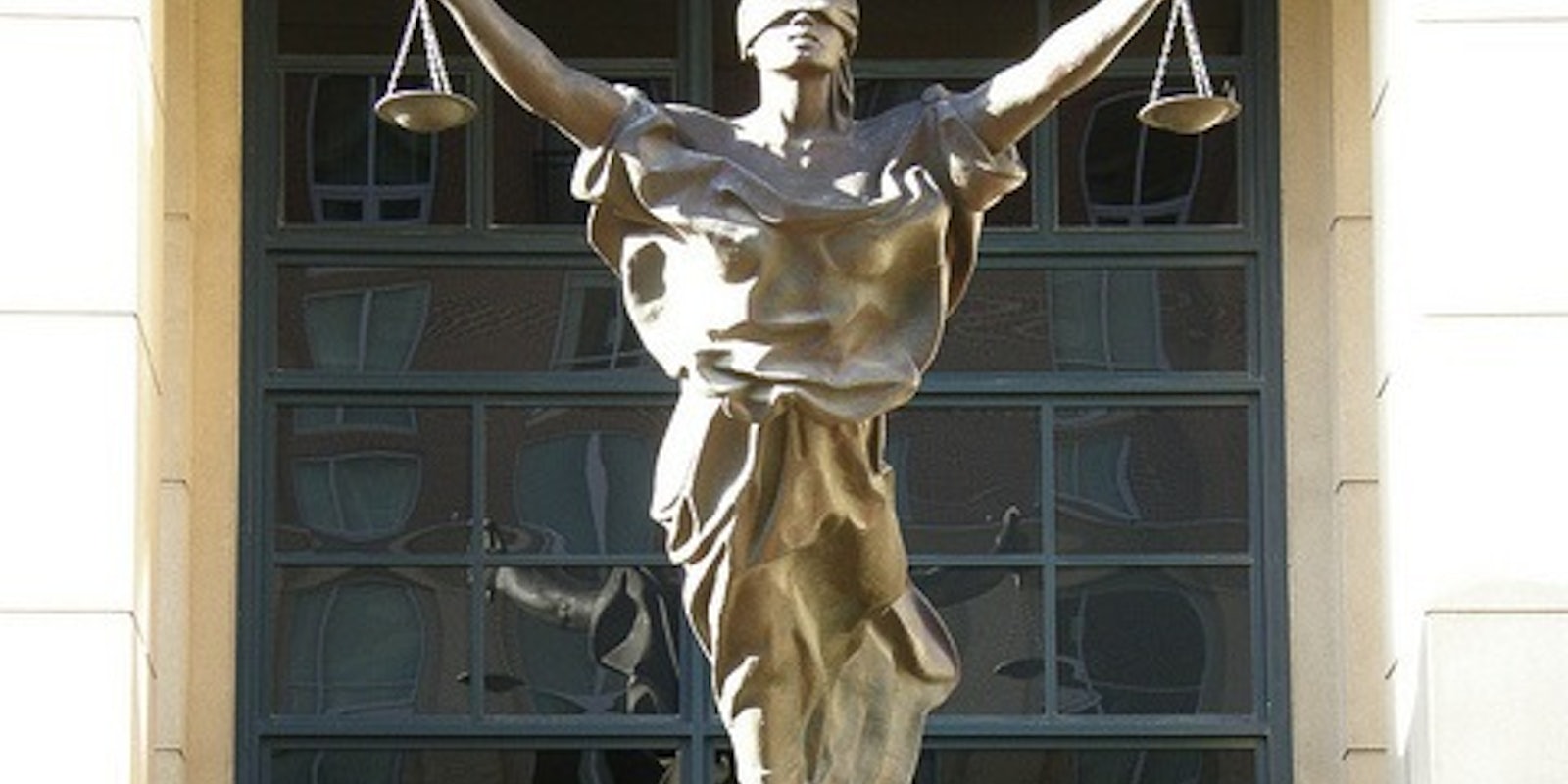There are so many ways to get in trouble online.
I used to think that the cops and courts beat was either the best or the worst beat in any newspaper, depending on the day. And when we started the Daily Dot, I wondered, how are we going to do cops and courts online; I mean, which police station do you go to? And do they have a media room? And how could we run a newspaper without cops and courts? “If it bleeds it leads,” right?
It turns out, I needn’t have worried.
What people—not hackers either, but mostly regular people—do online is getting them thrown into very offline jails with startling regularity. And I’m not just talking about in the Middle East or China where it seems like just about any old thing can get you silenced, thrown in jail, or even executed.
In Australia, for example, a man posted nude photos of his ex-girlfriend on Facebook. Why? “She hurt me and it was the only thing [I had] to hurt her,” he said. He’s sentenced to six months.
Also in Australia, three friends partied a little too hard, and as sometimes happens, they stole a penguin from Sea World. They awoke the next morning to discover their new pet. Unwilling to report their misbehavior, they released the penguin into nearby shark-infested waters. Seriously, I am not making any of this up. And they would have gotten away with it, too … if they hadn’t posted it on Facebook. The penguin is now fine, but the three friends were arrested.
***
Hilarious as such shenanigans might be to those of us not involved (as long as the penguin is OK in the end!), Internet crime is not merely relegated to pranks. It can be life-threatening.
Two young Utah men, inspired by Internet-meme star (I’ve also heard he has a show) Bear Grylls, decided to take up survivalism as a hobby. They booby trapped a local forest with everything that the Swiss Family Robinson ever came up with and more: sharpened stakes in the ground and swinging from trees. Fortunately for random hikers, the two friends showed off their new skills on Facebook and were arrested before anyone could get hurt.
Sports star and commentator Deion Sanders turned to Twitter when his ex-wife and a friend attacked him in his home. People these days will tweet anything: a meal, a conference, a revolution, and now—domestic violence.
Sanders eventually thought better of it and deleted the tweets. Of course, that was an exercise in futility: screenshots are readily available and a mere Google search away.
***
Trolling, hoaxes, and other staples of Internet life and culture can carry major penalties as well.
In 2008, a woman accused a Texas couple of sexual assault. The accused was found not guilty, so the woman turned to the Internet for revenge—what she presumably thought was vigilante justice. She, her husband, his brother, and two others posted more than 25,000 comments under 178 pseudonyms on Topix.net, calling the accused couple everything from sexual deviants to murderers and drug dealers. Eventually, the court ordered Topix to turn over identifying information and the harassers were hit with an almost $14 million bill for trolling.
In Pennsylvania, the FBI is after a group that has sent more than 100 bomb threats to the University of Pittsburgh. The Bureau has seized an anonymous email server, but no one thinks it’s going to get them anywhere. If “The Threateners” are caught, you can bet this will get them more than a slap on the wrist.
***
It’s not just individuals who can get in trouble online.
On Etsy, users are up in arms because the “world’s handmade marketplace” featured an Etsy seller who, gasp, sells factory-made goods. Etsy, after an investigation, says the reseller’s been falsely accused, but users are not convinced.
After just two days in business, Pinterest monetization tool, PinDollars, has been shut down. For a second there, it looked like PinDollars was going to allow users to do what Pinterest hasn’t been able to—monetize its traffic. But almost immediately, the tool got overwhelmed with porn, and Pinterest shut it down.
At the same time on Pinterest, a small-business owner using Pinterest to promote her original jewelry designs had her images stolen and used by spammers. She wants Pinterest to be able to police the site and protect her.
***
This week, the first class was inducted into the Internet Hall of Fame. It included such luminaries as Craig Newmark, Tim Berners-Lee, and Al Gore. Gizmodo’s Mario Aguilar said these were the wrong people to be inducting into the Internet Hall of Fame. Sure, they invented a bunch of the technological infrastructure that made the Internet possible, but they didn’t make it great.
“The architect who designed Fenway Park isn’t in Cooperstown,” Aguilar wrote, “but Babe Ruth sure is.”
It’s not Fenway Park itself, but what happens inside it that matters. On Reddit, this week, they’ve been arguing about whether or not the site is a city-state. The Internet has taken on a life of its own. With that comes both the good and the bad, and maybe they can’t be separated.
What separated Athens from the barbarian countryside around it? Was it the Agora and the high ideals of democracy? Or was it simply that there was some kind of police? The true measure of whether any part of the Internet is truly a civilization may not be whether it produces great art or the highest achievement.
There may be no greater proof of the “real lifeness” of the Internet than the fact that you can get arrested there.
Photo by Dan4th
